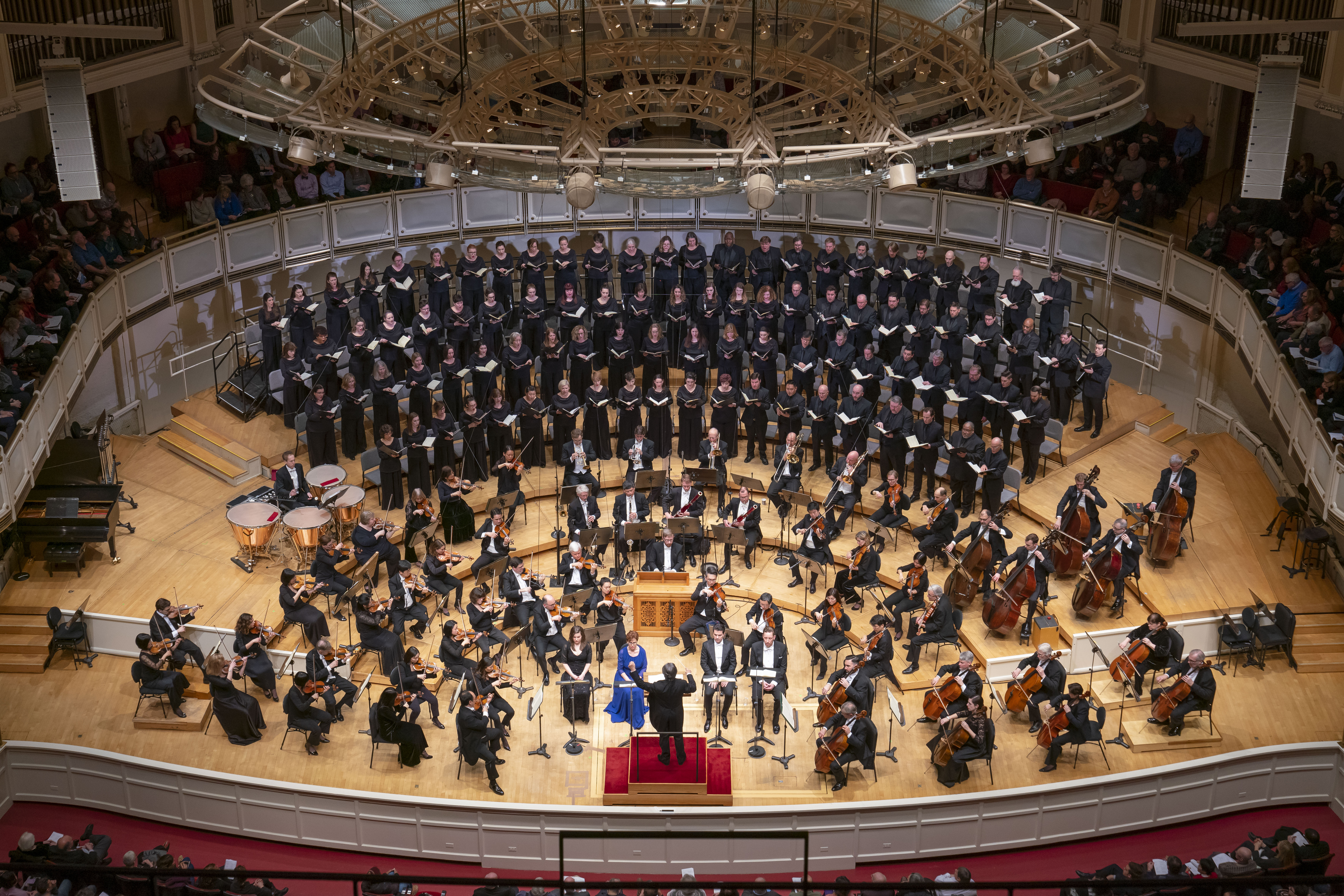CHICAGO — William Howard Schuman wrote Le fosse Ardeatine in 1968. Schuman, an American composer, created his 9th symphony (of 10) to commemorate the March 24, 1944 mass murder of 335 Italians by German troops at the Ardeatine Caves outside Rome. Opening a Feb. 21-23 program at Symphony Center, this weekend’s performances of Schuman’s Symphony no. 9 are the first by the Chicago Symphony Orchestra, selected and conducted by maestro Riccardo Muti to honor the 75th anniversary of the massacre.
According to program notes by Phillip Huscher, Schuman did not know and was not related to any of the victims, motivated to compose his tribute after a visit to the grave site in 1967. His symphony often reeks of death and discord; a drone from the string section anchors flourishes of curiosity on flute, oboe and bassoon near the beginning of the piece. Brass and percussion wind up front and center by its rousing end as it builds like a pot of boiling water.
This is a work that washed over me: Time signatures aren’t abundantly clear; raps on tympani, snare and tom hint at impressionable military officers drunk on power; I longed for some sort of resolution that I knew would never come. It is not simply appropriate that Muti, an Italian music director, and the CSO, an American orchestra, play this American work to commemorate Italy’s past. Indeed, Schuman seems to foreshadow the present as we grapple with acts of terror occurring with accelerating intensity and frequency at home and abroad.
A stranger commissioned Mozart’s Requiem, but it could easily be considered an anthem of his life. The death of a man at age 35, who would eventually be universally acknowledged as one of history’s greatest composers, remains shrouded in mystery, so it isn’t wholly different from Le fosse Ardeatine, though the two works, played together on this program, are separated by 175 years and sonically very different.
The devout will recognize the familiar strains of a Catholic mass, which has the orchestra, chorus and four vocalists (on this occasion soprano Benedetta Torre, contralto Sara Mingardo, tenor Saimir Pirgu and bass Mika Kares) oscillating between major and minor keys and spanning extremes of volume, as one’s emotions are apt to do at any funeral.
Like many people who likely came to this program knowing the second piece and not the first, I have fussy expectations when it comes to the Requiem, but quickly realized that, having never heard it live, it doesn’t matter if I prefer the Kyrie faster, or the Introitus and its reprise slower. Torre’s angelic voice cutting through to the gallery in Requiem’s first and last moments — “Requiem aeternam dona his Domine, et lux perpetua luceat eis,” (“Eternal rest grant to them, O Lord, and let perpetual light shine on them”) feels an apt tribute not only to a singular person like Mozart or his subject — a woman he never met — but for all those who’ve gone before us.
Header image: Riccardo Muti leads a performance of Mozart’s Requiem with the CSO, Chicago Symphony Chorus and distinguished soloists in Chicago’s Orchestra Hall on February 21, 2019. Photo credit: Todd Rosenberg.
